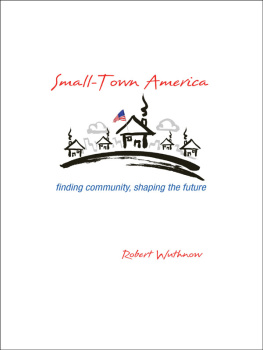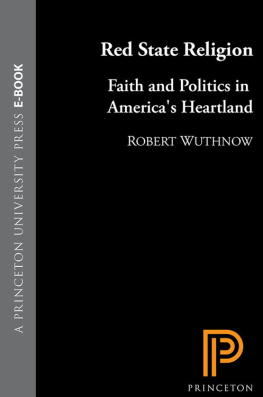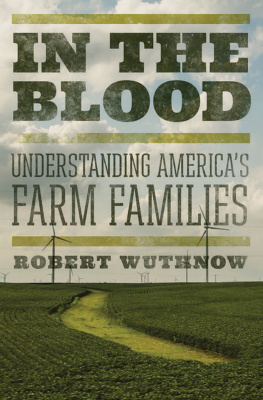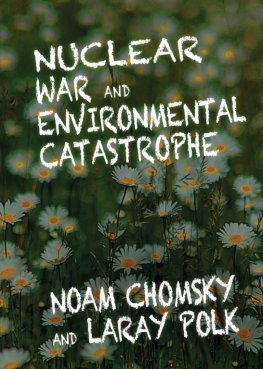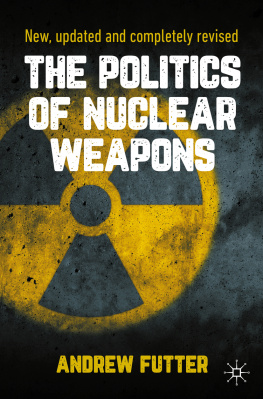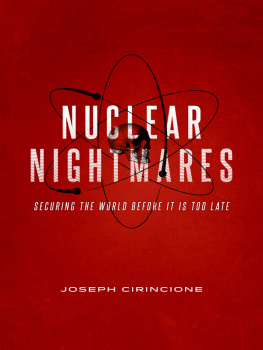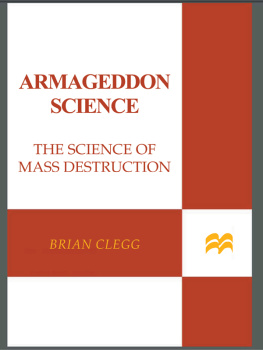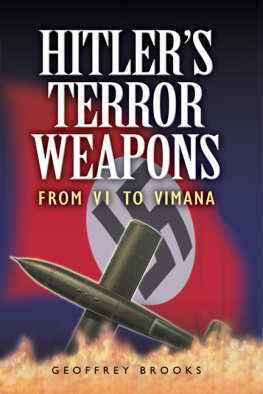BE VERY AFRAID
ROBERT WUTHNOW
BE VERY AFRAID
THE CULTURAL RESPONSE TO TERROR,
PANDEMICS, ENVIRONMENTAL DEVASTATION,
NUCLEAR ANNIHILATION, AND
OTHER THREATS


Oxford University Press, Inc., publishes works that further
Oxford Universitys objective of excellence
in research, scholarship, and education.
Oxford New York
Auckland Cape Town Dar es Salaam Hong Kong Karachi
Kuala Lumpur Madrid Melbourne Mexico City Nairobi
New Delhi Shanghai Taipei Toronto
With offices in
Argentina Austria Brazil Chile Czech Republic France Greece
Guatemala Hungary Italy Japan Poland Portugal Singapore
South Korea Switzerland Thailand Turkey Ukraine Vietnam
Copyright 2010 by Oxford University Press, Inc.
Published by Oxford University Press, Inc.
198 Madison Avenue, New York, NY 10016
www.oup.com
Oxford is a registered trademark of Oxford University Press
All rights reserved. No part of this publication may be reproduced,
stored in a retrieval system, or transmitted, in any form or by any means,
electronic, mechanical, photocopying, recording, or otherwise,
without the prior permission of Oxford University Press.
Library of Congress Cataloging-in-Publication Data
Wuthnow, Robert.
Be very afraid : the cultural response to terror, pandemics,
environmental devastation, nuclear annihilation,
and other threats / by Robert Wuthnow.
p. cm.
Includes bibliographical references and index.
ISBN 978-0-19-973087-2
1. Emergency management. 2. Threats. I. Title.
HV551.2.W88 2010
303.485dc22
2009026879
9 8 7 6 5 4 3 2 1
Printed in the United States of America
on acid-free paper
I decline to accept the end of man. It is easy enough to say that man is immortal simply because he will endure: that when the last ding-dong of doom has clanged and faded from the last worthless rock hanging tideless in the last red and dying evening, that even then there will still be one more sound: that of his puny inexhaustible voice, still talking. I refuse to accept this. I believe that man will not merely endure: he will prevail. He is immortal, not because he alone among creatures has an inexhaustible voice, but because he has a soul, a spirit capable of compassion and sacrifice and endurance. Our tragedy today is a general and universal physical fear so long sustained by now that we can even bear it. There are no longer problems of the spirit. There is only the question: When will I be blown up?
William Faulkner, Nobel Prize Acceptance Speech, 1950
BE VERY AFRAID
INTRODUCTION
FOR MORE THAN SIX DECADES, humankind has lived with the knowledge that it could be the agent of its own annihilation. We are constantly reminded of crises, large and small, present and anticipated. What effect has this awareness had on us? How have we responded?
The simple answer is that we have responded quite aggressively. Faced with the possibility of nuclear annihilation, terrorism, and the prospect of pandemics, we have hardly sat back and done nothing. We have rolled up our collective sleeves and spent billionsbillions waging the Cold War, billions fighting terror, and billions on vaccines and medical research.
Now that climate change is seen as a threat to our very existence, our response is the same. Plans are in the works to spend billions of dollars seeking solutions. Everything from wind power to fuel-efficient vehicles is on the table.
Critics argue that a lot of the money will be spent needlessly. Some point to preparations for the Y2K (the year 2000, or millennium bug) crisis and to pandemics that never materialized. The problem, some argue, is that big government bureaucracies have come into existence, and the bureaucrats at these agencies are promoting fear to fatten their budgets.
But of course that argument is too simple. Climate change really does threaten our existence. Millions could die from a pandemic or a dirty bomb strategically planted in a metropolitan area. We do need action to prepare for and guard against these threats.
The crux of the matter is this: We have a built-in propensity to act, but we need to engage in the right actions. We err so often because we are like generals fighting the last war. Terror strikes and we respond as if we are resuming the Cold War. Avian flu appears and we look to the epidemic of 1918 for guidance. Government agencies notoriously do so, but we as citizens do too. A threat appears and we buy duct tape because we did that the last time.
The complicated part is figuring out why we so often respond inappropriately. One reason why is that peril is terrifying and causes us to react with our emotions. Also, we respond less effectively than we might because it is difficult to assess risks. These are contributing factors, but they do not get at the real issue.
What has to be understood is that our responses to peril are fundamentally driven by the need to make sense of our very humanity. They are not just about solving the next crisis but about who we are as a people and as persons. How we respond tells us that we have courage, that we can overcome vulnerability, and that we can go ahead with our lives in the midst of adversity. Our responses speak to the basic fragility of the human condition.
Peril is the mirror we hold up to ourselves. It forces us to ask what it means to be human. It focuses our attention on the shortness and uncertainty of our lives. We imagine the worstdeath, the death of our children, the destruction of our way of life. Would we be able to withstand the suffering? Would our cherished institutions fail? Would chaos erupt?
Living with the prospect of devastation, even annihilation, as we have for more than two generations, has shaped our entire culture. We have created and live in a culture of peril. When a major event happens and when some new threat appears on the horizon we devote an enormous amount of effort to making sense of the eventand of ourselves. And as we do that, some of what we learn is narrowly applicable to the next crisis that comes along, but much of it is not. It has to do with our sense of vulnerability and our desire to believe in our way of life. We have to sort out what is applicable and what is not.
The sorting needed is difficult because we seldom address these basic existential questions through sustained philosophical or theological reflection. Instead we affirm our humanity by convincing ourselves that engaging in practical tasks is the best approach. We assess risks and look for solutions that will get us through the next immediate crisis. The discussions become quite technical and seem very reasonable. They focus on efficiency and effectiveness. But they are also how we define ourselves. They give us meaning.
Understanding the extent of this quest for meaning takes us into realms of the social sciences that are seldom consulted when thinking about huge national and international crises. It becomes necessary to examine the psychology and the cognitive frameworks involved and to learn from the work of cultural sociologists. Our interpretive schemas become evident in the literaturethe editorials and essays, fiction, poetry, personal accounts, and reportsthat has been generated to make sense of peril. We need to understand both the literature and the organizations that produce this literature.
Next page

